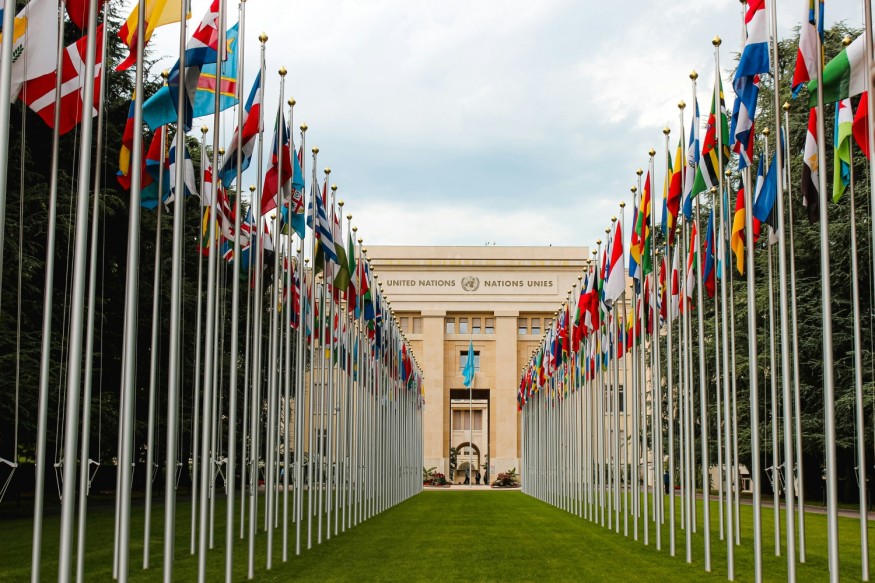UN Leaders Advocate ‘Wholesale Reform’ for Equity and Justice in Global Financial Architecture

UN leadership has presented an earnest stimulus to modify, line by line, the global financial architecture structure according to the presented vision. This high-level meeting of the United Nations General Assembly brought together many different thinkers and development nation leaders. Secretary-General of the United Nations António Guterres delivered this speech to show the great influence of debt on the economy. He was not happy with the incapability of the international financial framework within its scope, and he targeted the failure to properly handle debt, claiming that the past four years were a "debt disaster."
The Grim Reality of Debt
Guterres underlined the crippling effects of servicing external debt and the tendency of such nations to refuse any reinvestment in themselves by limiting their spending. Shocking statistics reveal the grim reality: since 2023, debt from bilateral loans and foreign assets accounted to over $313 trillion globally. The debt burden in developing countries is especially heavy in the case of national debts. In 25 low-income nations, the spend of 1 in every 5-tax money is directed at settling external debt, whereas interest rates top-up to the amount of 3.3 billion people of the global population- that is 40% of the earth's population- this would have to be used for paying interest, not healthcare or education.
The Secretary-General condemned the existing financial system as outdated, dysfunctional, and unjust, failing to adequately meet the needs of developing nations. He emphasized the imperative for fundamental reform during the General Assembly's discussion on debt sustainability and socioeconomic equality, a pivotal event marking the inaugural Sustainability Week convened by the President of the General Assembly.
The Alarming Disparities
Dennis Francis, President of the 78th session of the General Assembly, echoed Guterres's concerns, emphasizing the widening disparities between affluent and impoverished nations. He lamented the glacial pace of progress toward Sustainable Development Goals (SDGs), projecting that by 2030, an estimated 600 million people will still languish in poverty. Francis highlighted the alarming concentration of global wealth, with 10% of the population commanding 76% of total wealth. Despite the impending emergence of the world's first trillionaire by 2030, eradicating poverty remains an elusive goal, with projections suggesting it will take another 229 years to achieve.
The Urgency of Action
It is worth noting that the consequences of such loss are far-reaching thus affected groups such as youth, women, persons with disabilities, and rural communities as well. What Francis has expressed requires no further detailing. He has spelled out in no uncertain terms the implications of a half-hearted commitment, a preponderance of whom would, instead, join the ever-growing number of people afflicted with poverty as they would be denied the rewards of developing and would, thus, be deprived of the fruits of collective human endeavors.
Gill Sekreterer-General repeated that the debt vortex is life-threating for developing countries and emphasized that 500 billion USD financing every year derived from the world richest nations is needed for SDG Stimulus program which aim is to support United Nations SDG. Guterres strongly indicated that upscaling of funding, long term in nature yet affordable, as the key emphasis, and pleaded the creditors to consider debt freeze for countries under risk and assist them in debt restructuring.
The Need for Fundamental Reform
Furthermore, Guterres highlighted those fundamental reforms in the library of macroeconomic institutions are needed, specifically in the area of debt management. One of the major reforms that is proposed is upgrading the debt transparency and the launching of lending in local currencies. However, the development of innovative debt instruments is also on the balance. Precisely this was marked by Guterres underlining a notion of raising the counsel of poorest nations in decision making venues and a fact that they deserve to be at the table of international financial institutions, too.
On the other hand, in sum, the passionate proposal for an entire transformation of the world financial system turns into a legendary call for the fairness and equity while openly discussing about the constantly rising economic inequalities. The world, agonizing beneath the continuous burden of debt and inequality, needs a joint effort, along with cooperation, for an innovative way of improving the quality of the lives of everyone now and in the times to come.














